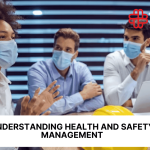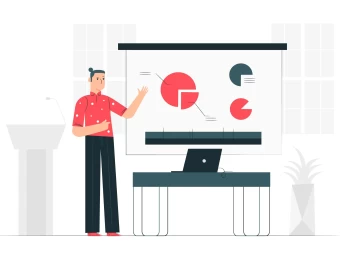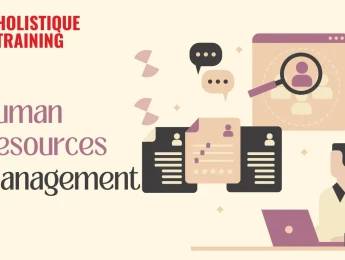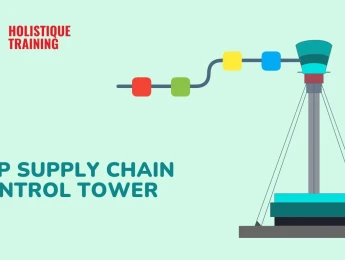Any organisation or business that provides food as a main product and service should strongly focus on maintaining the highest standards of food hygiene. Food hygiene management is the most crucial aspect of food production, as poor hygiene can damage the organisation's reputation and cause customers to fall ill.
Food hygiene management involves the hygiene of the entire kitchen. Maintaining personal and environmental hygiene will help prevent the possibility of food-borne illnesses or cross-contamination of allergens. Ensuring employees regularly wash their hands, swapping out food preparation items depending on the type of food, and regularly cleaning their environment are a few effective methods of maintaining food hygiene standards.
Maintaining hygiene standards is not only a good practice but is also written into law. Those handling and preparing food for public consumption should be fully aware of and compliant with all laws and regulations surrounding food safety and hygiene.
Upon completion of this course, participants will be able to:
- Understand the importance of food hygiene management and catering within an organisation.
- Investigate food safety and hygiene laws and regulations to ensure full compliance.
- Acknowledge the consequences of poor food hygiene and catering management.
- Assess the risks associated with food hygiene management and ideal methods of mitigating them.
- Utilise various methods to ensure hygiene is held to the highest standard.
- Explore what aspects and processes are involved in food hygiene.
- Correctly label all food items with necessary warnings regarding allergies and potential cross-contamination.v
This course is designed for anyone in the food production industry responsible for maintaining high food hygiene standards. It would be most beneficial for:
- Catering Managers
- Compliance Officers
- HSE Officers
- Senior Chefs
- Restaurant Managers
- Food Safety Consultants
- Quality Control Managers
- Operations Managers
This course uses a variety of adult learning styles to aid full understanding and comprehension. Participants will review real-world examples of established catering services to highlight key processes in maintaining food hygiene and possible areas for improvement.
To ensure the participants gain a full understanding of the taught content, they will have the opportunity to participate in a variety of learning methods, including presentations, demonstrations, group discussions, and practical activities. This combination of methods allows participants to develop an understanding of the knowledge and practise relevant practical skills.
Day 5 of each course is reserved for a Q&A session, which may occur off-site. For 10-day courses, this also applies to day 10
Section 1: Introduction to Food Hygiene Management
- Defining food hygiene management and its necessity and importance within the food production industry.
- Investigating what internal and external factors can influence the cleanliness and safety of food.
- Identifying what aspects of food production should be managed in relation to hygiene.
- Acknowledging the consequences of poor food management on different factors of the business.
Section 2: Risk Management
- Assessing laws and regulations surrounding food safety and hygiene to ensure full compliance throughout the food production process.
- Conducting risk and hazard identification assessments to identify sources of risk.
- Analysing risk and hazard data to establish a risk management plan detailing preventative measures and corrective actions.
- Incorporating risk management into general food management systems to ensure all necessary individuals are fully risk aware.
Section 3: Personal and Environmental Hygiene
- The vitality of maintaining personal hygiene throughout the entire process of food production.
- Follow hand washing standards whenever handling different types of food.
- Knowing what foods are safe and unsafe to handle interchangeably.
- Ensure self-awareness and remember to wash appropriately after touching unclean items.
- Identifying what cleaning products are safe to use in a food-centric environment.
Section 4: Food-borne Illnesses
- Understanding how poor hygiene can lead to food-borne illnesses.
- Recognising what common and uncommon food-borne illnesses are found within a kitchen and ideal methods of preventing them.
- Analysing how pathogens can spread within an environment.
- What to do if food is found to be contaminated.
Section 5: Cross-contamination
- Why preventing cross-contamination is crucial within a food environment.
- Identify what can be cross-contaminated within an environment and what steps must be taken to prevent this.
- Depending on the type of food, different tools and equipment are used, such as cloths, chopping boards, and more.
- Ensuring allergy awareness within the workplace.
- Correcting labelling and providing warnings with common allergens to protect consumers.
Upon successful completion of this training course, delegates will be awarded a Holistique Training Certificate of Completion. For those who attend and complete the online training course, a Holistique Training e-Certificate will be provided.
Holistique Training Certificates are accredited by the British Assessment Council (BAC) and The CPD Certification Service (CPD), and are certified under ISO 9001, ISO 21001, and ISO 29993 standards.
CPD credits for this course are granted by our Certificates and will be reflected on the Holistique Training Certificate of Completion. In accordance with the standards of The CPD Certification Service, one CPD credit is awarded per hour of course attendance. A maximum of 50 CPD credits can be claimed for any single course we currently offer.
- Course Code IND10-105
- Course Format Classroom, Online,
- Duration 5 days














